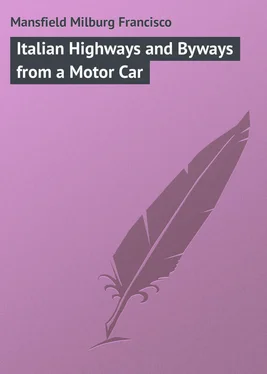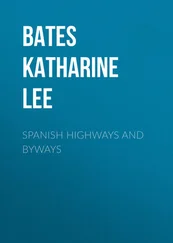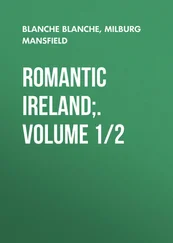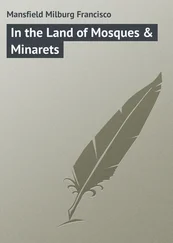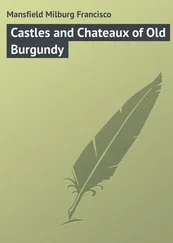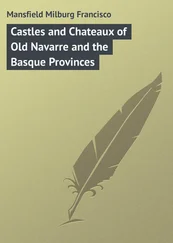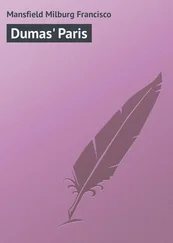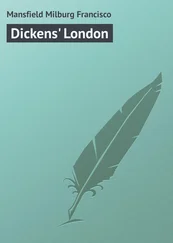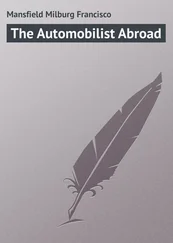Milburg Mansfield - Italian Highways and Byways from a Motor Car
Здесь есть возможность читать онлайн «Milburg Mansfield - Italian Highways and Byways from a Motor Car» — ознакомительный отрывок электронной книги совершенно бесплатно, а после прочтения отрывка купить полную версию. В некоторых случаях можно слушать аудио, скачать через торрент в формате fb2 и присутствует краткое содержание. Жанр: foreign_prose, Путешествия и география, на английском языке. Описание произведения, (предисловие) а так же отзывы посетителей доступны на портале библиотеки ЛибКат.
- Название:Italian Highways and Byways from a Motor Car
- Автор:
- Жанр:
- Год:неизвестен
- ISBN:нет данных
- Рейтинг книги:3 / 5. Голосов: 1
-
Избранное:Добавить в избранное
- Отзывы:
-
Ваша оценка:
- 60
- 1
- 2
- 3
- 4
- 5
Italian Highways and Byways from a Motor Car: краткое содержание, описание и аннотация
Предлагаем к чтению аннотацию, описание, краткое содержание или предисловие (зависит от того, что написал сам автор книги «Italian Highways and Byways from a Motor Car»). Если вы не нашли необходимую информацию о книге — напишите в комментариях, мы постараемся отыскать её.
Italian Highways and Byways from a Motor Car — читать онлайн ознакомительный отрывок
Ниже представлен текст книги, разбитый по страницам. Система сохранения места последней прочитанной страницы, позволяет с удобством читать онлайн бесплатно книгу «Italian Highways and Byways from a Motor Car», без необходимости каждый раз заново искать на чём Вы остановились. Поставьте закладку, и сможете в любой момент перейти на страницу, на которой закончили чтение.
Интервал:
Закладка:
This passion for drawing lots is something born in him; even if lotteries were not legalized, he would still play lotto in secret, for in enthusiasm for games of chance, he rivals the Spaniard.
But Italy is not the country of illiterates that the stranger presupposes. Campania is the province where one finds the largest number of lettered, and Basilicate the least.
Military service begins and is compulsory for all male Italians at the age of twenty. It lasts for nineteen years, of which three only are in active service. The next five or six in the reserve, the next three or four in the Militia and the next seven in the “territorial” Militia, or landguard.
Conscription also applies to the naval service for the term of twelve years.
The military element, which one meets all over Italy, is astonishingly resplendent in colours and plentiful in numbers. At most, among hundreds, perhaps thousands, of officers of all ranks, there can hardly be more than a few score of privates. It is either this or the officers keep continually on the move in order to create an illusion of numbers!
Class distinctions, in all military grades, and in all lands, are very marked, but in Italy the obeisance of a private before the slightest loose end of gold braid is very marked. The Italian private doesn’t seem to mark distinctions among the official world beyond the sight of gold braid. A steamboat captain, or a hall porter in some palatial hotel would quite stun him.
The Italian gendarmes are a picturesque and resplendent detail of every gathering of folk in city, town or village. On a festa they shine more grandly than at other times, and the privilege of being arrested by such a gorgeous policeman must be accounted as something of a social distinction. The holding up of an automobilist by one of these gentry is an affair which is regulated with as much pomp and circumstance as the crowning of a king. The writer knows!!
Just how far the Italian’s criminal instincts are more developed than those of other races and climes has no place here, but is it not fair to suppose that the half a million of Italians – mostly of the lower classes – who form a part of the population of cosmopolitan New York are of a baser instinct than any half million living together on the peninsula? Probably they are; the Italian on his native shore does not strike us as a very villainous individual.
But he is usually a lively person; there is nothing calm and sedentary about him; though he has neither the grace of the Gascon, the joy of the Kelt, or the pretence of the Provençal, he does not seem wicked or criminal, and those who habitually carry dirks and daggers and play in Black Hand dramas live for the most part across the seas.
The Italian secret societies are supposed hot beds of crime, and many of them certainly exist, though they do not practise their rites in the full limelight of publicity as they do in America.
The Neapolitan Camarra is the best organized of all the Italian secret societies. It is divided, military-like, into companies, and is recruited, also in military fashion, to make up for those who have died or been “replaced.”
The origin of secret societies will probably never be known. Italy was badly prepared to gather the fruits to be derived from the French Revolution, and it is possible that then the activity of the Carbonari, Italy’s most popular secret society, began. The Mafia is more ancient and has a direct ancestry for nearly a thousand years.
A hundred and twenty-five years ago the seed of secret dissatisfaction had already been spread for years through Italy. The names of the societies were many. Some of them were called the Protectori Republicani, the Adelfi, the Spilla Nera, the Fortezza, the Speranza, the Fratelli, and a dozen other names. On the surface the code of the Carbonari reads fairly enough, but there is nothing to show that any attempt was made to stamp out perhaps the most generally honoured of the traditions of Naples – that of homicide.
The long political blight of the centuries, the curse of feudalism, the rottenness of ignorance and superstition, had eaten out nearly every vestige of political and self-respecting spirit. After the restoration of the Bourbons the influences of the secret societies in Southern Italy were manifested by the large increase of murders.
CHAPTER III
CHIANTI AND MACARONIA
THE hotels of Italy are dear or not, according to whether one patronizes a certain class of establishment. At Trouville, at Aix-les-Bains in France, at Cernobbio in the Italian Lake region, or on the Quai Parthenope at Naples, there is little difference in price or quality, and the cuisine is always French.
The automobilist who demands garage accommodation as well will not always find it in the big city hotel in Italy. He may patronize the F. I. A. T. Garages in Rome, Naples, Genoa, Milan, Florence, Venice, Turin and Padua and find the best of accommodation and fair prices. For a demonstration of this he may compare what he gets and what he pays for it at Pisa – where a F. I. A. T. garage is wanting – and note the difference.
The real Italian hotel, outside the great centres, has less of a clientèle of snobs and malades imaginaires than one finds in France – in the Pyrenees or on the Riviera, or in Switzerland among the Alps, and accordingly there is always accommodation to be found that is in a class between the resplendent gold-lace and silver-gilt establishments of the resorts and working-men’s lodging houses. True there is the same class of establishment existing in the smaller cities in France, but the small towns of France are not yet as much “travelled” by strangers as are those of Italy, and hence the difference to be remarked.
The real Italian hotels, not the tourist establishments, will cater for one at about one half the price demanded by even the second order of tourist hotels, and the Italian landlord shows no disrespect towards a client who would know his price beforehand – and he will usually make it favourable at the first demand, for fear you will “shop around” and finally go elsewhere.
The automobile here, as everywhere, tends to elevate prices, but much depends on the individual attitude of the traveller. A convincing air of independence and knowledge on the part of the automobilist, as he arrives , will speedily put him en rapport with the Italian landlord. Look as wise as possible and always ask the price beforehand – even while your motor is still chugging away. That never fails to bring things to a just and proper relation.
It is at Florence, and in the environs of Naples, of all the great tourist centres, that one finds the best fare at the most favourable prices, but certainly at Rome and Venice, in the great hotels, it is far less attractive and a great deal dearer, delightful though it may be to sojourn in a palace of other days.
The Italian wayside inns, or trattoria , are not all bad; neither are they all good. The average is better than it has usually been given the credit of being, and the automobile is doing much here, as in France, towards a general improvement. A dozen automobiles, with a score or more of people aboard, may come and go in a day to a little inn in some picturesque framing on a main road, say that between Siena and Rome via Orvieto, or to Finale Marina or Varazze in Liguria, to one carriage and pair with two persons and a driver. Accordingly, this means increased prosperity for the inn-holder, and he would be a dull wit indeed if he didn’t see it. He does see it in France, with a very clear vision; in Italy, with a point of view very little dimmed; in Switzerland, when the governmental authorities will let him; and in England, when the country boniface comes anywhere near to being the intelligent person that his continental compeer finds himself. This is truth, plain, unvarnished truth, just as the writer has found it. Others may have their own ideas about the subject, but this is the record of one man’s experiences, and presumably of some others.
Читать дальшеИнтервал:
Закладка:
Похожие книги на «Italian Highways and Byways from a Motor Car»
Представляем Вашему вниманию похожие книги на «Italian Highways and Byways from a Motor Car» списком для выбора. Мы отобрали схожую по названию и смыслу литературу в надежде предоставить читателям больше вариантов отыскать новые, интересные, ещё непрочитанные произведения.
Обсуждение, отзывы о книге «Italian Highways and Byways from a Motor Car» и просто собственные мнения читателей. Оставьте ваши комментарии, напишите, что Вы думаете о произведении, его смысле или главных героях. Укажите что конкретно понравилось, а что нет, и почему Вы так считаете.
